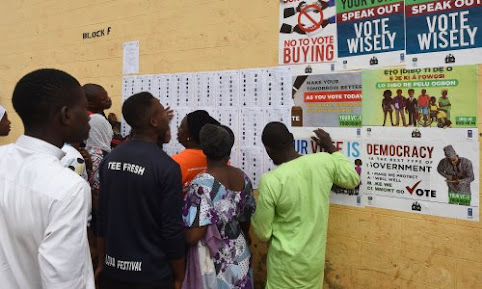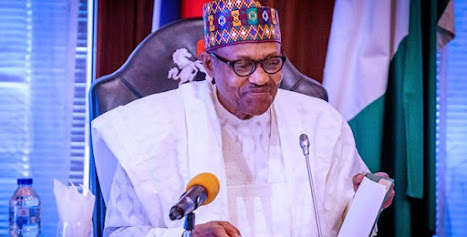By Ugochukwu Ejinkeonye
Last Wednesday, we had a very important and urgent need to be in Kumasi very early the next day. It was already midnight (Nigerian Time –11pm in Ghana), and we were still in the heart of Accra, surrounded by its brilliant lights, soothing serenity (there was not the faintest hint of any generator anywhere) and profound modesty, wondering what to do. But a Ghanaian who was with us did not seem to share our worries. He simply told us to hit the road, that in the next three hours, we should be in Kumasi.
Ghanaian President John Dramani Mahama and
President Goodluck Jonathan (pix:ghanaweb)
I looked at him with surprise and disbelief. Who was sure nobody had hired him to lure the three of us into a well-laid ambush by violent robbers? When I expressed my concern about armed robbers, his answer was sharp, with a tinge of impatience.
“There are no armed robbers!”
When I repeated the concern much later, he said something he should not have said, but which Nigerians need to continue hearing no matter how painful we find it: “I have told you… no armed robbers! This is not Nige…!” He cut himself short. It occurred to him, a bit too late though, that he had gone too far in his bid to emphasize that point.
Just like the way I felt when I shouted to some Nigerians at one place we had gone to in Accra some days later when the driver was about to run over a bag: “Remove that Ghana-Must-Go bag!” The other Nigerians there looked at me with horror in their eyes. Then one of them said something like: "How can you be shouting Ghana-Must-Go in Accra?"
When I called a Nigerian friend and he reassured me that the long journey from Accra to Kumasi was safe, we hit the road. At the one or two places where very friendly policemen stopped us, they merely looked at the vehicle and waved us on with their torches, without the slightest hint that they wanted an ‘egunje.’ And so, after a long journey through lonely, lengthy stretches of the expressway, and vast quiet countryside, we embraced the warmth of the clean, well-lit streets of Kumasi early that cold morning, and found our way to the serene ambience of the Kwame Nkrumah University of Science and Technology.
Compared to Nigeria, Ghana is, no doubt, a very poor country. Beyond the glitter of an efficient system is poverty that is real and palpable. But Ghana has been lucky with its leaders. What nation would not prosper under the watch of a visionary, patriotic leader who is not afraid of his people who had elected him in fairly free and fair elections, but lives among them (instead of hiding himself in an impregnable fortress like our leaders do in Aso Rock). He is able to inspire the citizenry to believe in him, and buy into his determination to put in place a workable system? It is only thieving, failed leaders that live in perpetual fear of their people.

Kwame Nkrumah University of Science and
Technology, Kumasi, Ghana (pix:talloiresnetwork)
Throughout my stay in Ghana, I never dialled any number twice with my Ghana MTN line, no matter the country I called! But ever so often in Nigeria, if you dial a number duly saved in your phone, and with which you may have talked with the owner just a few minutes ago, what you would probably hear is: “This number does not exist on the MTN network.”
Then you try again: “The number you have dialled is incorrect.”
And you dial the third time: “The number you have dialled is switched off.”
Fourth time: “The number you have dialled is unavailable.”
And if you have the patience to try the fifth time, it may then go through! What a country!
Ghana Telecom Service Providers are effectively monitored and regulated, unlike what the Nigerian Communications Commission (NCC) claims it is doing for us here. The Ghana regulatory body ensures that no service provider sells lines more than it has the capacity to manage. It once, reportedly, called MTN to order, when it attempted to roll out lines like it does so freely in Nigeria.
Each time I recharged my line with 2 Ghana Cedis (N230), I would make several calls both to Nigeria and within Ghana, and would still have much credit remaining. But here in Nigeria, the thing finishes with incredible speed.
It offends me each time anyone attempts comparing Nigeria with Europe or America. From Swaziland, Botswana to Mozambique, Kenya, Tanzania, Zambia to Uganda, Benin, Ghana, Ivory Coast to the Gambia, Nigeria is, perhaps, the only country in the whole of Africa that is yet to achieve reasonable stability in its electricity supply. We are here still grappling with pitch darkness and watching our pitiably blank and hare brained leaders telling embarrassing, infantile stories about their inexplicable failure and insufferable incompetence, while very poor countries we can easily buy up have since left us behind on this issue of power supply and provision of other social amenities.
In most of these countries, one can conveniently walk to any public tap and drink water, but whoever tries that in Nigeria any time some liquid manages to trickle from any public tap would be guilty of attempting suicide.
At Kwame Nkrumah University of Science and Technology (KNUST), Americans, Britishers, Chinese and people from diverse nations of the world are proudly enrolled as students.
In 1993, I met an America Professor of Economics who proudly announced to me that while he studied for his Masters Degree at the University College, Ibadan, (UCI) in 1958, he stayed in Kuti Hall. I wonder if he can advise any American child today to get near that same Kuti Hall he spoke so glowingly about, or encourage the child of his worst enemy to attend a Nigerian University.
Former Ghanaian Leader, Jerry Rawlings
While a friend and I took a walk around midnight on Saturday, we felt so safe, despite the several trees in the well landscaped and beautified compounded that lend the school its serenity, but which could provide cover for any cultists to strike.
As we stood on a walkway, about eight American youths hopped across, chattering, laughing and feeling so much at home. I am told that children of countless Nigerian government officials are enrolled in the school, generating huge funds to Ghana with which it now offers divers scholarships to its own citizens.
Yes, Nigerians would prefer paying all the money to Ghana than improving and making our own schools safe so that youths from several parts of the world can also come here (as used to be the case) to study. Indeed, the KNUST faculty Guest Houses can comfortably diminish some of the things that pass for “big” hotels in Nigeria.
Ghanaians do not appear to have the drive and innovativeness of Nigerians. Under sincere and honest leaders who are not mere common criminals whose eyes and hearts are only focused on the treasury to loot it pale, what would stop Nigeria from becoming one of the greatest countries in the world?
But what do we get here as leaders: the Babangidas, the Abachas, the Obasanjos: rulers who derive peculiar animation from prospering by marketing the nation’s entrails.
Obasanjo’s only noticeable achievement while in office was to join the emergency Billionaires’ Club with such fanfare and brazenness that sent all the others scampering for safety . But while leaving office, he left us in the hands of an Umaru Musa Yar’Adua whose only understanding of leadership seems to be to perennially grope for direction.
So, while our leanly endowed neighbours like Ghana are gradually laying solid foundation for greater tomorrow, Nigeria is decaying and sinking into unimaginable depths.
Laden with an insufferably inept legislative house, and a character like Maurice Iwu as INEC Chairman, what options are left for a country so immensely rich, but so irresponsibly managed?
What a tragedy.
----------------------
(First Published July 21, 2008)



-2.jpeg)









